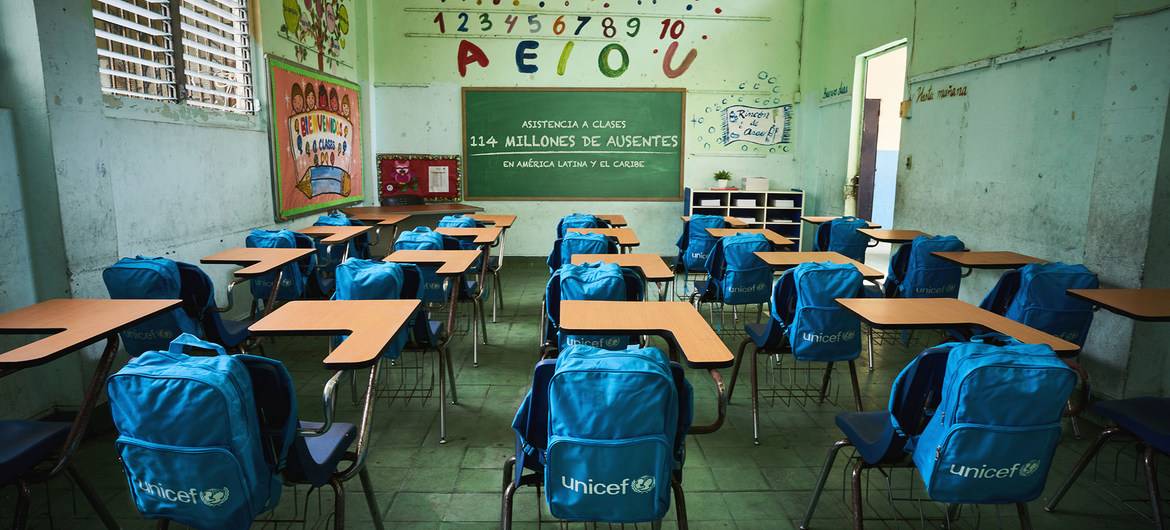National Education Policy (NEP) 2020 makes way for revolutionary academic reforms, but it falls short of fully harnessing the power of private schools, says report.
Industry body, Federation of Indian Chambers of Commerce & Industry (FICCI) has launched a white paper raising the need to hold discussions around the means to achieve quality education for all through structural reforms to meet the future learning needs.
The report states that as against any major country across the world where the percentage of students attending unaided independent schools barely reaches the double digit, nearly 50 per cent of Indian children study in private schools.
Their rise is an important, and often, unheard story about our education system. Typically perceived as ‘elite’, the growth in the private sector has actually been powered by a wave of low-and middle-income families seeking better education for their children.
70% private school students pay less that Rs 1000 per month
70 percent of the students study in private schools that charge less than INR 1000 per month, as against Government schools spend of about INR 30,000 per child per annum. While the number and spread of independent schools has grown multifold, regulations that were originally framed to govern government schools continue to regulate independent schools too. This acts as a hindrance for quality players to enter the sector.
The report has been authored by Vardan Kabra, Co-founder and Head, Fountainhead School and Anupam Gupta, CA and an expert in thematic research. The research brought forward ideological arguments centering the lack of universal access to quality education to all students and the government won’t be able to shore up investments to the required levels and would need significant private participation.
Opening the dialogue over the issue of liberalization of private sector schools in India, Manit Jain, Chairman, FICCI ARISE said, “The time is right to introduce concrete structural reforms including decontrolling the functions of the private school system in the country. The private education sector, which can educate far more on a lesser budget than the public education sector, is being stifled by unnecessary layers of regulations. It is a reasonable demand to urge the Government to incentivize private players for it alone cannot achieve the target to reach SDG4 by 2030."
‘Private schools need flexibility’
As per UNDP estimates, the total financial requirement for India to reach SDG 4 by 2030 averages $173 billion per year, far exceeding the current government budget of $76.4 billion a year for education. In the present era, even the poorest parents are moving their kids away from public schools to private schools in the hope of a better education. Hence, private schools, seen as a medium for better education, need to be provided all the required flexibility and resources to make this goal a reality.
Prabhat Jain, Former Chairman, FICCI Arise, Director - Pathways World School, said, "If we step back a little and analyze the scenario and growth of the Indian education landscape, we come to realize that it took us over three decades to reform our education policy. Where the world is untangling the challenges concerning Artificial Intelligence (AI), machine learning, innovative thinking, we are still struggling with basic issues like literacy and access to education. Preparing today’s students for Industry 4.0 requires near transformation of existing schools in the government and independent sectors alike. Significant investments are needed for setting up thousands of new age innovative schools that shall become models of change. Lack of investment will leave future generations, especially the poorest, at a severe disadvantage, amplifying inequalities that already exist. In order to step up our pace, I think this document will help, guide and lead us in preparing our children for the competitive world ahead."
Highlighting the poor quality of education and significant fall in enrolment rate of the government schools, Gurcharan Das, Author and Commentator, said, “I strongly condemn the prevalence of license raj in the school education system. It is so disheartening to see that a single school requires about 30-40 certificates from various government departments, which in most scenarios are issued only after a series of bribes collectively amounting to lacs of rupees. It deters idealistic and passionate educators from revolutionising and actively contributing to the education system.”
The FICCI ARISE report pushes for urgent and bold reforms, including unleashing the private sector's potential in improving the country's learning outcomes. The reforms suggested by the report include restructuring regulatory bodies which overlook the education sector, rationalizing the right to education, standardizing testing till grade 8, funding individual students, especially those from EWS as being practiced in the State of Andhra Pradesh, and allowing schools to run on profit along with handing them complete autonomy regarding formalizing norms. Lack of autonomy, access to proper funding, and strict operational regulations are crushing private schools' ability to impart new-age educational skills to millions of learners, impacting their professional and personal lives.
Read More:
Follow Shiksha.com for latest education news in detail on Exam Results, Dates, Admit Cards, & Schedules, Colleges & Universities news related to Admissions & Courses, Board exams, Scholarships, Careers, Education Events, New education policies & Regulations.
To get in touch with Shiksha news team, please write to us at news@shiksha.com


Abhay Anand is an experienced education journalist with over 15 years in print and digital media. Currently serving as Manager- Editorial at Shiksha.com, he specializes in higher education policy, student mobility,
Read Full Bio